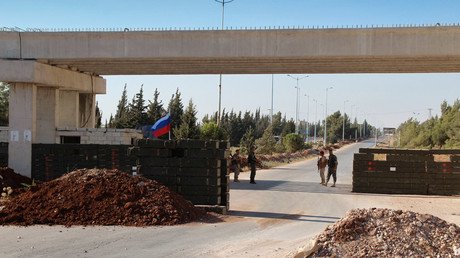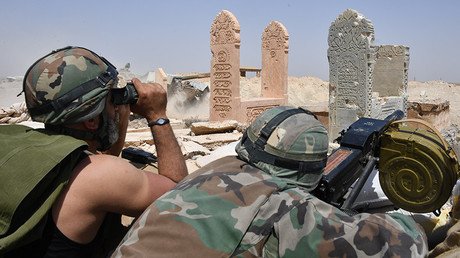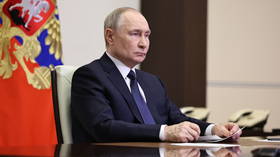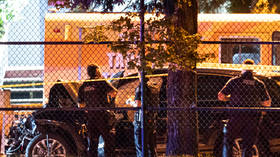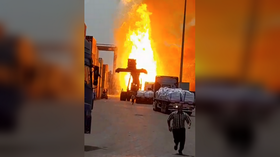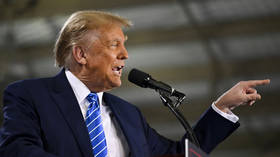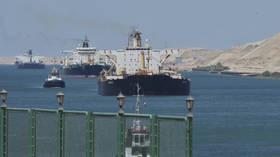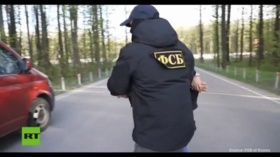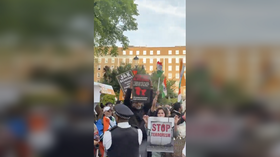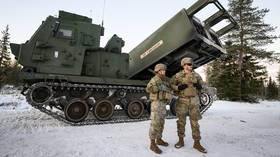New 25,000-strong Syrian terrorist force unites 70 gangs – Russian General Staff
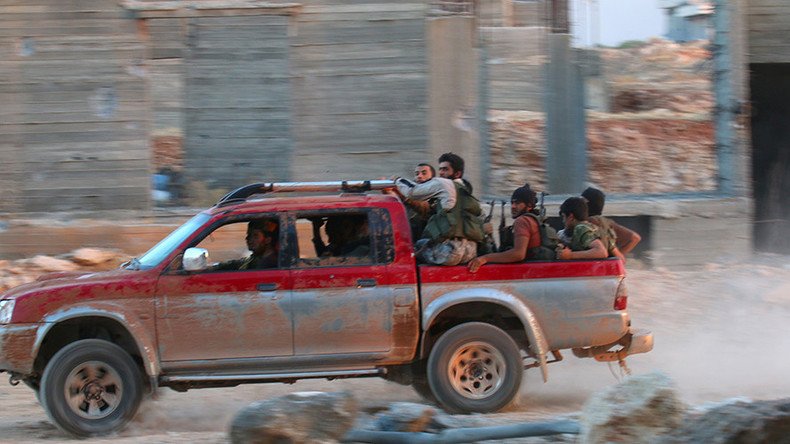
A new terrorist formation, Hayat Tahrir ash-Sham, consists of 25,000 militants, with Jabhat al-Nusra jihadists at its core, the intelligence chief of Russia’s General Staff said. He also spoke of the terrorists’ favorite tactics, state-of-the-art equipment and ways of getting profit.
“Currently, more than 70 gangs, including those from the ranks of the opposition, which used to consider themselves ‘moderate,’ have banded together. The total strength of the Hayat Tahrir ash-Sham group exceeds 25,000 militants,” Col. Gen. Igor Korobov, the head of the Main Directorate of the Russian General Staff (the foreign military intelligence agency), said during a roundtable on Friday as part of the Army-2017 international military-technical forum, held in the Moscow Region.
The key role in the formation belongs to Jabhat al-Nusra (Nusra Front), which is “engaged in active hostilities against the Syrian government forces and moderate opposition in the provinces of Aleppo, Damascus, Idlib and Hama,” he added.
READ MORE: Russian air force destroys 200+ ISIS terrorists heading for Deir ez-Zor, Syria – MoD
Jabhat al-Nusra currently “includes more than 15,000 militants, most of whom are Syrians," the military intelligence chief said.
As for Islamic State (IS, formerly ISIS/ISIL), the group’s numbers exceed 9,000 militants, according to the General Staff estimates.
‘Bee swarm’ tactics
The effective tactics employed by the militant groups in Syria make them a formidable foe for the regular forces, Korobov said.
“The terrorists use the so-called ‘bee swarm’ tactics, the essence of which is the organization of chaotic shelling and surprise attacks on the Syrian military, carried out by small, but well-coordinated mobile units,” Korobov said.
READ MORE: No role for West & allies in Syria until they cut support to terrorists – Assad
This creates the effect of “constant attack,” which tires and demoralizes larger military formations, depriving them of the initiative, the general added.
The terrorists are also flexible as they are “capable of quickly switching from partisan tactics to open offensive and back,” Korobov said.
Drones and human shields
The Syrian militants are also well-equipped, employing “state-of-the-art armaments, intelligence and electronic warfare, and improvised toxic substances,” he added.
“Unmanned aerial devices are widely used in reconnaissance and attack equipment,” the intelligence chief said, adding that quadcopters rigged with explosives have become a problem for the units of the Syrian Democratic Forces, taking on the jihadists in Raqqa.
“Armored vehicles and artillery are deployed in residential areas near hospitals, schools, mosques and other socially significant facilities to avoid destruction by airstrikes,” he said.
The terrorists opt for perimeter defense, connecting nearby buildings by tunnels to be able to quickly exchange messages or regroup, the General added.
“Long-term firing points are equipped on the lower floors of buildings, while SUVs with large-caliber machine guns, anti-tank weaponry and mortars, are used as weapons platforms,” he said.
Such SUVs are used by the militants during their offensive operations against towns and villages, held by the government or other opposition groups, the military intelligence chief said.
“Their task is to break through the defense – often using explosive-laden cars, driven by suicide bombers – wedged into the opponent’s battle order and gain a foothold before the approach of the main forces,” he added.
Profits from selling oil, artefacts & human organs
The operations of the terrorists in Syria are funded through “profits from the illegal sale of oil, the trade in artifacts of cultural and historical value, drugs, the sale of human organs for transplantation and the collection of the so-called tax from the population of the seized areas,” he said.
Private donations and financial contributions from various non-governmental organizations, created by Islamists abroad, also represent an important item of income for the Syrian militants, according to the general.
"As a rule, the funds are transferred to the bank accounts of front men in the countries neighboring Syria, where they are cashed and smuggled into Syrian territory," he explained.
Besides modern military technologies, the terrorists use “simple, yet effective” means of defending their positions, including “using civilians as human shields to deprive the government forces of their advantage in firepower,” Korobov said.
The analysis of the activities of Jabhat al-Nusra and Islamic State in Syria “suggest the emergence of new-style terrorist organizations, which pursue ambitious aims and are capable of adopting to the changes in the environment,” Korobov said.
“We’re dealing with a strong and dangerous enemy, which poses a threat not only to the Middle East, but to the other regions of the world,” he said.
“Our task is to inflict the maximum damage on the terrorists on Syrian soil,” Korobkov stressed.
